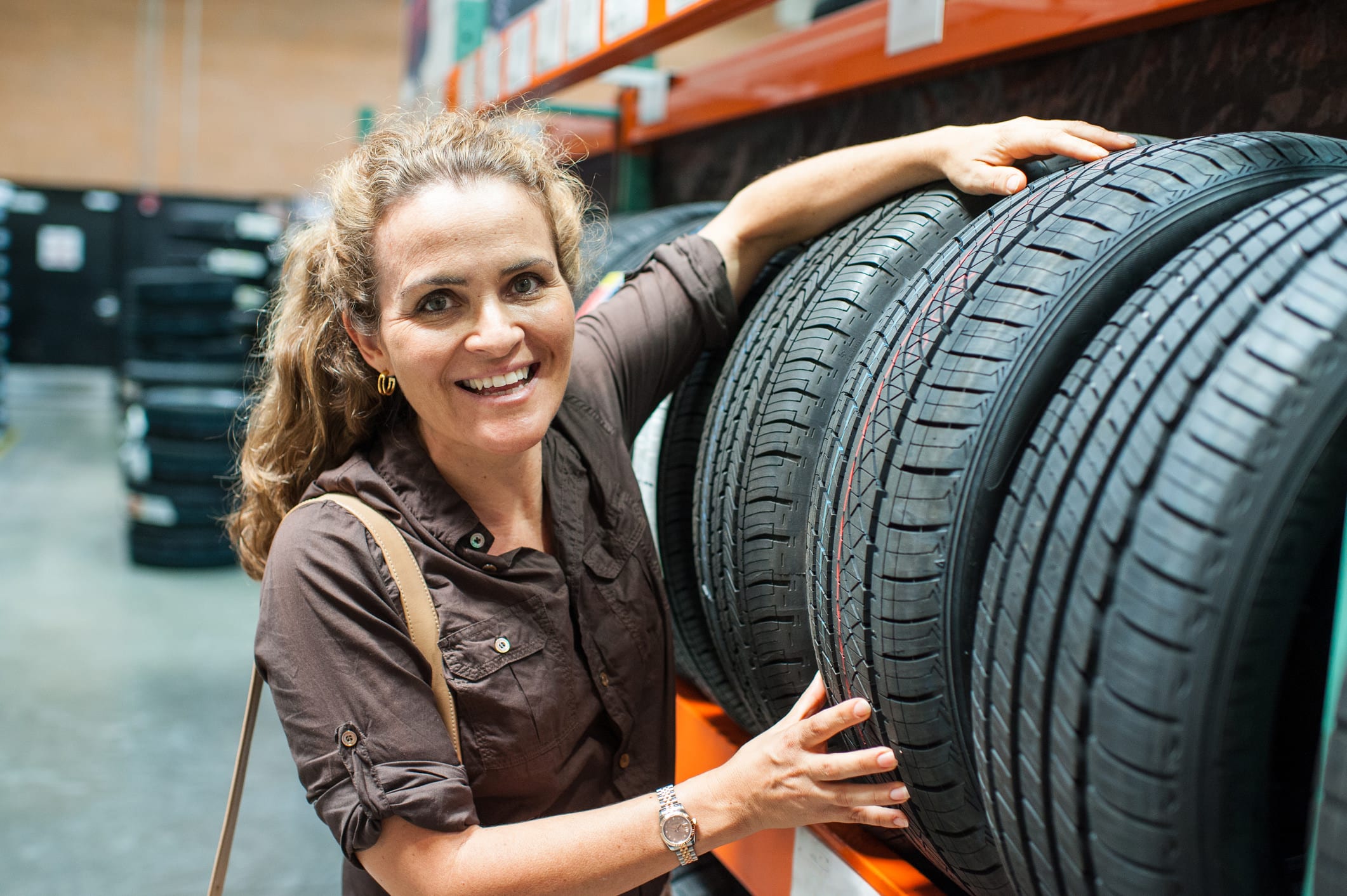Ready to build a better future? Apply now.
Personal loansGood tires are extremely important for road safety. They can also be expensive, so you should be infomed on when to replace tires and how to save money when you do.
When is it time to buy new tires?
Most tires last between 5 and 10 years, but they can wear out faster if you drive a lot. The older the tire, the more safety risks they pose.
Find the manufacturer’s name on the side of the tires. Then check the manufacturer’s website to see when your tires should be replaced. Cracks, cuts, and flats all mean that the tires are wearing out.
You can check tread depth using the George Washington quarter and the Lincoln penny tests. Stick the coins into the tire’s tread groove, with the top of the head going in first. If you can see the top of Washington’s head on the quarter, it’s time to shop for tires. If you can see the top of Lincoln’s head on the penny, you need new tires right away.
Where should you buy tires?
Shop around, both locally and online.
Many online stores, such as America’s Tire and Tire Rack, let you compare prices and features on different brands. Be sure you’re looking at options for the correct make and year of your car. Consider shipping costs as well as tire prices.
Once you’ve found the best deal online, see if a local store will match that price. Or just buy the tires online and have them shipped to your preferred body shop for installation. Before having the work done, ask about any other charges, such as balance and alignment, that may be added to your bill.
Used tires are cheaper than new, but they’re also riskier. If you want to buy used tires, be sure to get your mechanic’s expert opinion on their safety.
What kind of tires do you need?
It’s smart to get something similar to those already on your car. Consumer Reports’ Tire Buying Guide recommends staying with the size and speed rating printed on the side of the tires.
You may also want to look at tire reviews, recalls, and complaints at the National Highway Traffic Safety Administration website.
How can you prolong tire life?
Weather, road quality, and air pressure all affect your tires. Consumer Reports recommends that you
- Check air pressure each month.
- Don’t fill tires all the way to the maximum PSI printed on the side.
- Replace tires that have cracks or cuts.
- Examine the wear on your tire treads. Wear at the center of the tires means they are overinflated. Wear the edges means they’re underinflated. If the wear is only on one side, your tires may be misaligned.
- Do the George Washington quarter test to determine tread depth.
Above all, stay safe on the roads!
The information in this site, including any third-party content and opinions, is for educational purposes only and should not be relied upon as legal, tax, or financial advice or to indicate the availability or suitability of any Oportun product or service to your unique circumstances. Contact your independent financial advisor for advice on your personal situation.
Personal loans through Oportun subject to credit approval. Terms may vary by applicant and state and are subject to change. If you refinance, you may pay interest over a longer period of time or at a higher rate and the overall cost of your loan may be higher. Loans in NM and WI are originated by Oportun, Inc. California loans made pursuant to a California Financing Law license. NV loans originated by Oportun, LLC. In AL, AK, AR, AZ, CA, DE, FL, GA, HI, ID, IL, IN, KS, KY, LA, MI, MN, MO, MS, MT, NC, ND, NE, NH, NJ, OH, OK, OR, PA, RI, SC, SD, TN, TX, UT, VA, VT, WA and WY loans are originated by Pathward®, N.A.. Terms, conditions, and state restrictions apply.
You might also like










